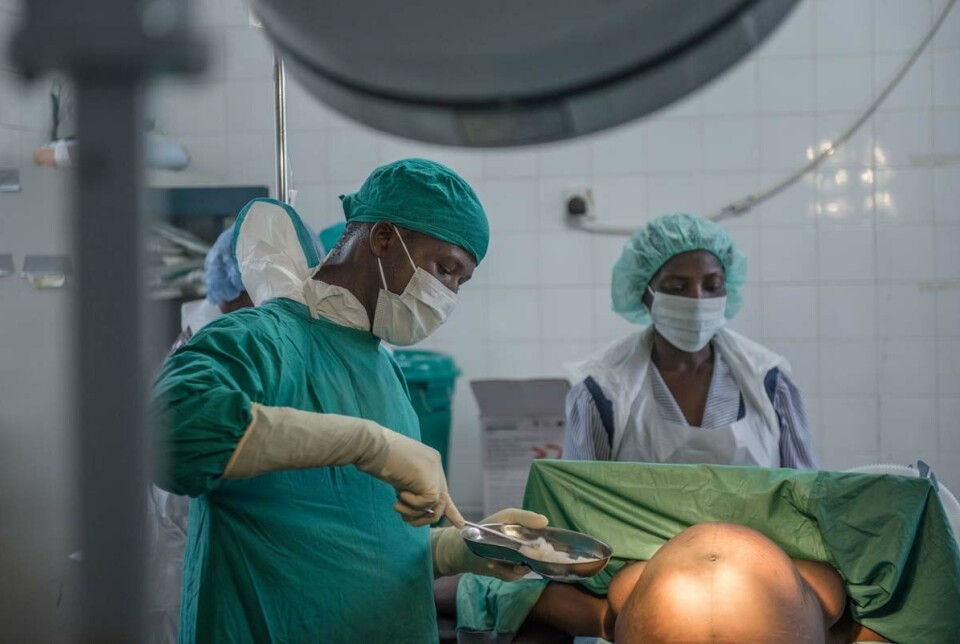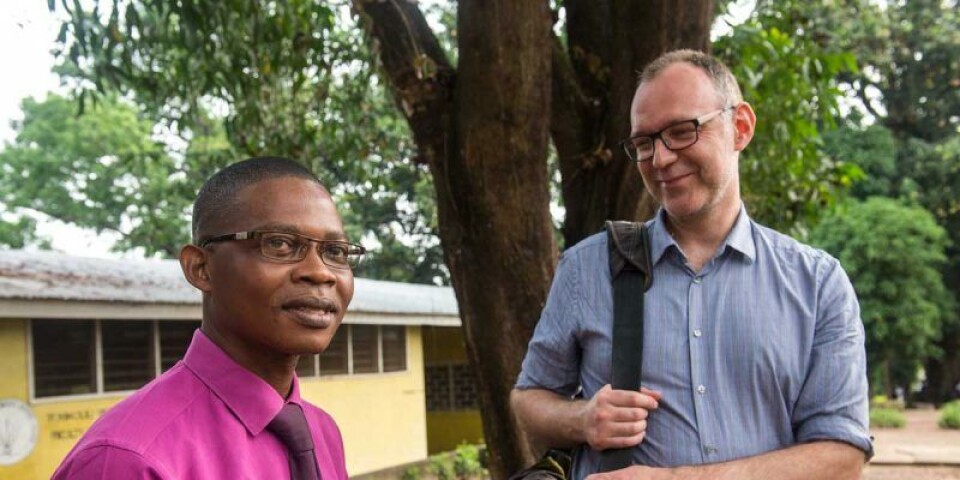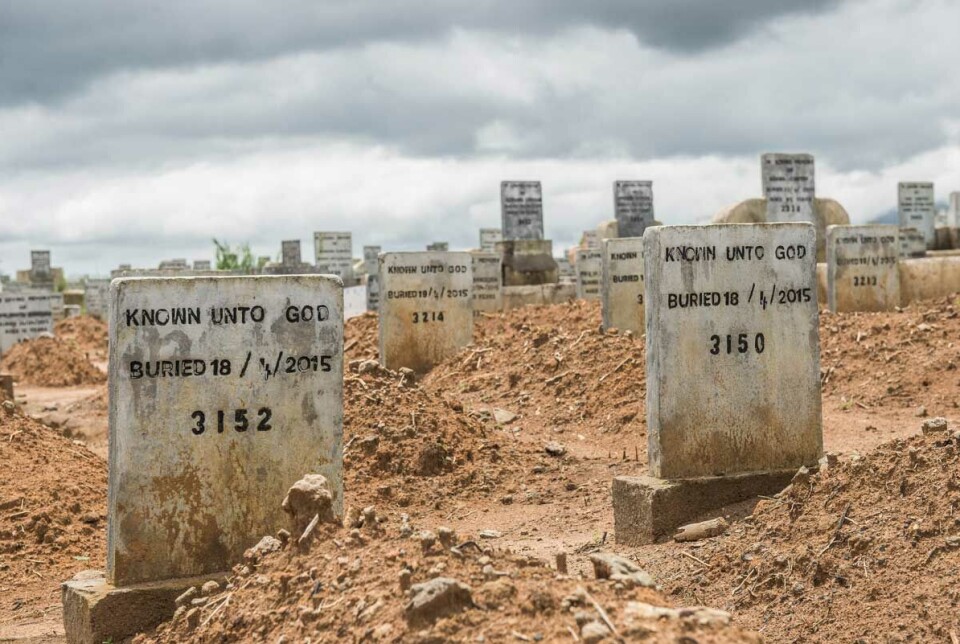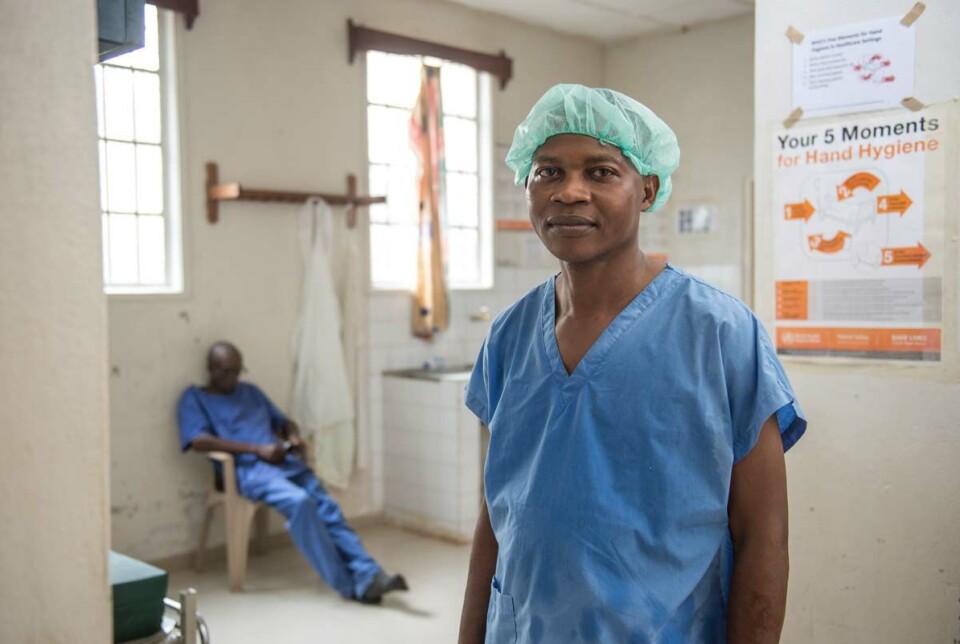THIS CONTENT IS BROUGHT TO YOU BY NTNU Norwegian University of Science and Technology - read more

Saving lives in Sierra Leone, one C-section at a time
Sierra Leone used to be the most dangerous place in the world to give birth. Without enough doctors to do C-sections, women and babies were dying. But what if you didn’t need a doctor?
It’s 2012, and the rainy season in Sierra Leone. Adama Kamara, 26, is pregnant and in labour. She lives in the jungle, far from any cities, in the central, mountainous part of the country. This is her third pregnancy, but she is still childless. Both her previous babies have died.
After several days of painful labour, Adama and her husband decide to travel to Masanga, the nearest hospital. It’s a long journey over the mountains on a motor bike, but they have no choice.
It’s not a simple journey. Adama has already lost a lot of blood. Once they arrive, the doctor on call does an ultrasound. A cesarean section is the only option.
But in this country of 7 million people, with less than a dozen surgeons, what if there is no doctor to do the surgery?
Need to more than just 'parachute' in
Shortages of trained medical professionals can be a problem in many developing countries, especially far from big cities.
That was certainly the case in Sierra Leone in 2012, when there were only 10 Sierra Leonean surgeons practicing in surveyed hospitals, or one specialist surgeon for 700,000 people. By comparison, in 2021, the US had one surgeon for every 1,3263 people.
In 2007, a young Norwegian doctor named Håkon Bolkan had been working in Sierra Leone to help create a home-based treatment programme for malaria. He’d also had experience responding to international medical crises.

Talking to a colleague at St. Olavs Hospital who had also worked with international medical crises, he had this realisation: Medical teams parachute in, help, and then leave. All the long-term pressing medical problems facing lesser developed countries don’t disappear, even if the emergency aid provided by outside doctors has helped saved lives.
In these situations, there often aren’t enough doctors to do routine medical procedures, like emergency surgical care.
“My passion was in surgery, and I started to reflect maybe this can be done to train lower level caregivers to do surgery,” he said in the podcast episode. “And then we discovered that this was done actually in East Africa in quite a few countries. And this gave the inspiration to start a training program in Sierra Leone to train clinical officers to do surgical operations.”
Building capacity in healthcare
We’ve all heard the proverb: Give a man a fish and he’ll eat for a day. Teach him to fish and he’ll eat for a lifetime.
In this case, the skill being taught is surgery. Lifesaving surgery — like cesarean sections, the surgery that was only available to Adama after she travelled for hours with her husband through the mountains on a motorbike in search of help.
Training actual surgeons, though — that takes years. So Bolkan and his colleagues took a different road.
In 2011, they created a non-profit organisation, CapaCare, that would train Sierra Leone’s Community Health Officers to do life-saving surgeries, like cesarean sections and hernia repairs.
Ebola, government resistance and more
It hasn’t been an easy journey to train those community health officers, though.
There was a major Ebola outbreak in 2014-2016, just after the programme was established. There was resistance from the government, which was afraid that this new type of healthcare provider wouldn’t be good enough.
There was resistance from Sierra Leone’s few doctors, who didn’t think anyone other than trained doctors should be performing surgeries. There was the Covid-19 pandemic.
And there are the simple challenges of working in a sub Saharan country, where everything from traffic accidents to endemic diseases like Lassa fever and malaria can be fatal.

Research helps document benefits and needs
More than a decade after CapaCare’s establishment, Bolkan and his colleagues have trained more than 80 graduates.
New numbers released by the United Nations program UNICEF in February this year show that deaths in pregnancy and childbirth in Sierra Leone have plunged 74 per cent since 2000.
Not all of this is due to CapaCare, of course, but the trained community health officers have more than doubled the number of cesarean sections performed, making it possible to help women like Adama, in desperate need.
Along the way, Bolkan and van Duinen have documented their work in a series of research articles. They’ve published studies about at everything from how community health officers tackled the challenge of providing care during the Ebola outbreak to documenting a comparison of surgical outcomes between trained community health officers and surgeons.

This research can help other aid programmes as they work towards similar goals — and the research helps CapaCare see how their training is working and where there are still unmet needs.
“This baby would have died”
One of the first graduates of the programme, Emmanuel Tommy, says he’s been doing these surgeries long enough now that he occasionally encounters the mothers he operated on — with their pre-teen children.
“When I see these babies growing up, you know, I’m very excited. I always reflect, if I was not there to deliver this baby, this baby would’ve died. And that would be a very big loss to the society, to the community," he said on the podcast.
Below is a video describing the training programme:
References:
Bolkan et al. Met and unmet need for surgery in Sierra Leone: a comprehensive retrospective countrywide survey from all healthcare facilities performing surgery in 2012, Surgery, 2015. DOI: 10.1016/j.surg.2014.12.028
Bolkan et al. Safety, productivity and predicted contribution of a surgical task-sharing programme in Sierra Leone, British Journal of Surgery, 2017. DOI: 10.1002/bjs.10552
Drevin et al. “For this one, let me take the risk”: why surgical staff continued to perform caesarean sections during the 2014–2016 Ebola epidemic in Sierra Leone, BMJ Global Health, 2019. DOI: 10.1136/ bmjgh-2018-001361
Ribacke et al. The Impact of the West Africa Ebola Outbreak on Obstetric Health Care in Sierra Leone, PLOS ONE, 2016. DOI: 10.1371/journal.pone.0150080
Treacy et al. Distance, accessibility and costs. Decision-making During Childbirth in Rural Sierra Leone: a Qualitative Study, PLOS ONE, 2018. DOI: 10.1371/journal.pone.0188280
van Duinen et al. Caesarean section performed by medical doctors and associate clinicians in Sierra Leone, British Journal of Surgery, 2019. DOI: 10.1002/bjs.11076
van Duinen et al. Perinatal outcomes of cesarean deliveries in Sierra Leone: A prospective multicenter observational study, International Journal of Gynecology & Obstetrics, 2020. DOI: 10.1002/ijgo.13172
More content from NTNU:
-
Fish farming is least harmful to the seabed in the north
-
Study: Centralising hospitals has reduced birth mortality
-
Early testing of schoolchildren: “We found absolutely no effect”
-
This determines whether your income level rises or falls
-
Why is nothing being done about the destruction of nature?“We hand over the data, but then it stops there"
-
Researchers now know more about why quick clay is so unstable





































